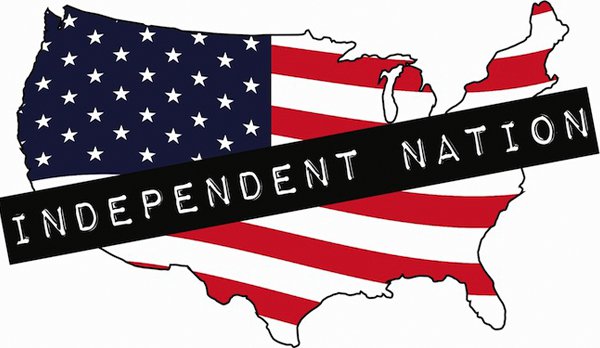Saying Independent Voters Are a Myth Fuels False Narrative on Elections

It's something that's often thrown about by pundits: the idea that the independent voter is largely a myth. Talking heads love to label independent voters as closet partisans who will always lean toward either the Republican or Democratic party. Independent voters just don't like being labeled or are simply disengaged, they say. Anything, it seems, to maintain the left versus right paradigm.
“This idea of the sage citizen who eschews party affiliation, is unbiased and persuadable by reason and facts, is very much a myth,” said Scott Keeter, director of survey research for the Pew Research Center. “Most people are committed to a party.”
Most independents vote for a candidate based on issues rather than towing the party line blindly, and most independents are much more likely to switch parties, and their votes, from election to election, also holding less consistent allegiance than their partisan counterparts.
Some independent voters certainly do tend to favor a certain party over others. But because they vote more regularly for one of the two dominant parties existing in a system designed to cater to only those two parties, doesn't mean they are pseudo-independent.
As the Washington Post points out, in 2006, independents chose Democratic House candidates over Republicans, 57 to 39 percent, but in 2008, Democrats won independents only by 8 points. And in 2010, Democrats lost them by 19 points.
What anti-independent pundits often fail to mention is the limiting structure of the political arena that makes it so difficult to completely eschew party affiliation. Independent voters are marginalized by the system created by the two parties who are desperate to maintain the status quo, and in many circumstances, if an independent wants to participate, they have to defy the definition of independent to do so.
In the 28 states with closed or semi-closed primaries, if an independent voter wants to participate in the primary, they must register with a specific party. If they decide to register for the sake of having a say in their state primary, pundits no longer consider them independent. If they don't register and decide not to vote in a primary, they are considered “disengaged.” In reality, independent voters have been undemocratically barred from participation based on their political ideology.
For those independents in competitive states, casting a vote outside of the two party system may seem like a vote in favor of their least favorite party. And due to campaign finance and ballot access laws, which make it extremely difficult for independent and third party candidates to fund successful campaigns and gain ballot access, independent voters are left with even less of a choice outside the two parties come election day.
The highest number of Americans in 70 years, 40 percent, now identify as independent voters,more than those who identify as either a Republican or Democrat. Eighty-one percent of Americans report being unhappy with the way Republicans and Democrats are running the country, and support for the two parties is at a 22-year low. But until the two parties are forced to relinquish their strangle hold on the political system, independents may have to play along.




